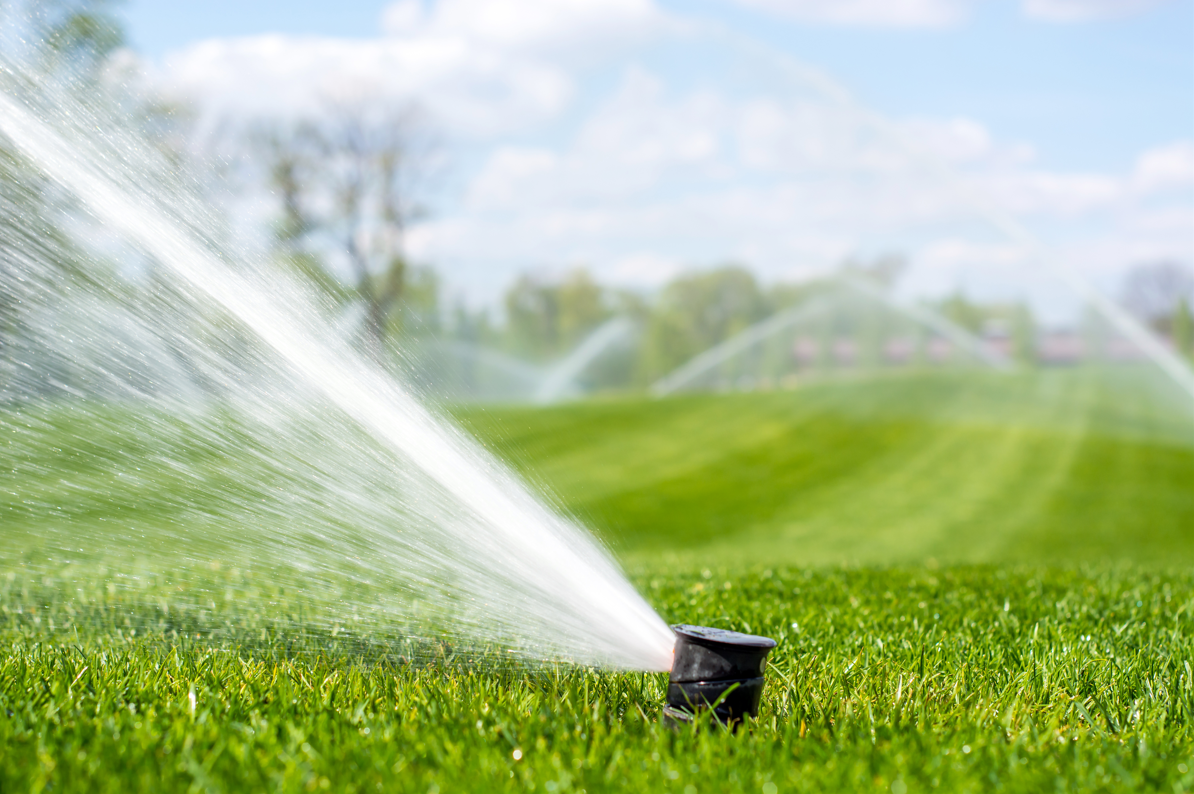This year’s theme for Smart Irrigation Month, We Are Smart Irrigation, is a time to focus on the hardworking people in the industry. Our team at Arborjet | Ecologel has deep experience with irrigation, so we’ve asked for their tips to help you get the most out of your systems and watering practices.
We highlighted four different team members’ experiences with irrigation, as well as their best Smart Irrigation tips to help you get the most out of your systems and practices.

Rebecca Knapp, Western Commercial Turf Regional Manager
I’ve been part of the green industry since 2006, focusing primarily on fertilization, maintenance, and landscape construction. I first started working with irrigation in 2011, and since then have gained extensive experience with different irrigation systems in various settings, including sports fields and golf courses; high-volume systems with booster pumps and injectors.
Here are my top Smart Irrigation tips:
- Use a smart controller that connects to the internet for automatic weather monitoring – you don’t want to irrigate when it’s raining!
- Utilize drip irrigation where possible, such as for flower beds, gardens, and shrubs.
- Create separate irrigation zones so grass can be watered separately from shrubs and trees.
- Make sure irrigation heads are properly adjusted to avoid watering hard surfaces like concrete and asphalt where runoff can take place.
- Nozzles should aim to spray large droplets and avoid misting. This will help minimize evaporation and mist that is lost in the wind.
For those in Arizona, check out AZMET for valuable resources like turf crop coefficients, ET data, weather insights, and turf quality recommendations (I use this all the time)!

Jim Spindler, Director of Agronomy
With over 40 years in the green industry, my journey has been dedicated to enhancing irrigation practices. From large public golf courses to my kids’ sports fields, I’ve installed and advised on fertilizer technology, and managed irrigation schedules for optimal performance.
Here are my top tips for Smart Irrigation:
- Perform irrigation audits on a regular basis. This includes keeping up with the irrigation system maintenance to assure proper head-height in the ground. Make sure nozzles are clean and performing well.
- Make sure scheduling is appropriate to the site. Deep, less frequent irrigation is best, but sometimes on very heavy soils “pulse irrigation” is required to minimize runoff.

Zak Peterson, Midwest Commercial Turf Regional Manager
My journey in the green industry spans 15 years, specializing in sports fields, golf course management, and lawn care. Working extensively with sports fields involves meticulous hand-watering and scheduling around events. I learned to precisely measure how much water is in the soil at any given time. I’ve also upgraded irrigation systems by installing new valves and controllers across entire fields.
Here are my top tips for Smart Irrigation:
- Make sure to water less frequently, but for longer periods of time. Water until the soil is soaked through.
- To prevent fungal issues and promote healthier turf, minimize irrigation during humid conditions.
- Many homeowners tend to overwater their lawns – optimize watering practices to maintain turf health and reduce the need for fungicides.

Sarah Spatola, Director of Product Marketing
I have over 14 years of experience in the green industry and am currently serving on FNGLA’s Landscape Irrigation Committee. Throughout my career, I have seen firsthand that smart irrigation covers much more than just the equipment. Smart irrigation requires a holistic approach that considers the needs of the plants being irrigated, soil quality management, and the design and maintenance of the irrigation system itself. I am focused on educating others about the importance of sound practices, soil health, and soil chemistry, all to help significantly reduce watering demands and promote sustainable landscape management.
Here are my top tips for Smart Irrigation:
- Even the most well-designed and efficient irrigation systems will fail to keep plants adequately hydrated if soils do not absorb or retain moisture. Consider using soil quality and water management products (like FOURPlay) to ensure your plants water needs are met.
- Increase mowing height and avoid unnecessary pruning. These will help mitigate stress during periods of extreme heat or drought.
Follow these Smart Irrigation tips for your best chance of success with irrigation systems and water management this month and beyond!

